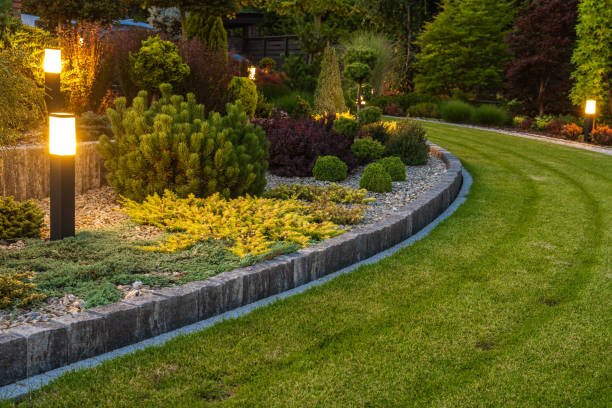Maintaining a garden in Dubai requires special care and attention due to the region’s unique climate and soil conditions. The hot temperatures, limited rainfall, and sandy soil create challenges for gardeners. However, adopting sustainable garden maintenance practices can help keep your garden healthy and thriving while conserving resources. This guide covers the best practices for sustainable garden maintenance in Dubai.
Understanding Dubai’s Garden Environment
Climate Challenges
Dubai has a desert climate characterized by very hot summers, mild winters, and low annual rainfall. Temperatures often exceed 40°C (104°F) during summer, making it hard for many plants to survive without extra care. The intense sun and dry air can cause rapid water evaporation, increasing irrigation needs.
Soil Conditions
The soil in Dubai is mostly sandy and low in organic matter. This type of soil drains quickly but holds fewer nutrients, which makes it difficult for plants to access the water and minerals they need. Improving soil health is an essential step for sustainable gardening.
Water Management Techniques
Efficient Irrigation Systems
Using efficient irrigation methods helps reduce water waste, a critical factor in Dubai’s water-scarce environment. Drip irrigation is highly recommended because it delivers water directly to the roots, minimizing evaporation and runoff. Timers and moisture sensors can automate watering schedules to avoid overwatering.
Rainwater Harvesting
Although rainfall is minimal, collecting rainwater during the rainy season can supplement garden irrigation. Installing rainwater harvesting systems such as barrels or tanks allows you to store and reuse water, reducing dependence on municipal supplies.
Mulching to Retain Moisture
Applying a layer of mulch around plants helps retain soil moisture and regulate temperature. Organic mulches like wood chips or compost also improve soil quality as they break down. Mulching reduces the need for frequent watering, saving water and effort.
Choosing the Right Plants
Native and Drought-Tolerant Species
Selecting plants that are native or well-adapted to desert conditions is key to sustainable gardening in Dubai. These plants typically require less water and care. Examples include desert rose, bougainvillea, and date palms. Using drought-tolerant species reduces irrigation demands and increases the garden’s resilience.
Grouping Plants by Water Needs
Organize your garden by grouping plants with similar water requirements together. This approach, known as hydrozoning, helps optimize irrigation and prevents overwatering. Plants with high water needs can be placed in shaded or protected areas to reduce stress.
Soil Improvement Practices
Adding Organic Matter
Regularly adding organic matter such as compost or manure improves soil fertility and water retention. This enriches the sandy soil with nutrients, supporting healthy plant growth. Homemade compost from kitchen scraps is an eco-friendly way to recycle waste.
Soil Testing and Amendments
Periodic soil testing can identify nutrient deficiencies and pH imbalances. Based on test results, you can apply specific soil amendments like gypsum or lime to improve structure and fertility. Healthy soil promotes strong roots and reduces plant diseases.
Pest and Weed Management
Natural Pest Control
Avoid chemical pesticides by using natural pest control methods. Introducing beneficial insects like ladybugs and praying mantises can keep harmful pests in check. Companion planting, where certain plants repel insects, is another effective strategy.
Manual and Mulch-Based Weed Control
Weeds compete with garden plants for water and nutrients. Removing them manually or using mulch as a barrier limits weed growth without chemicals. Regular weeding maintains garden health and appearance.
Seasonal Garden Maintenance
Summer Care Tips
During Dubai’s hot summer months, reduce watering in the early afternoon to prevent water loss through evaporation. Provide shade for sensitive plants using shade cloth or temporary covers. Prune plants to remove dead material and promote air circulation.
Winter Maintenance
Winter offers milder temperatures ideal for planting and garden renovation. Use this time to add compost, prune overgrown shrubs, and plant new species. Keep an eye on frost-sensitive plants during rare cold snaps.
Sustainable Gardening Tools and Practices
Using Eco-Friendly Tools
Choose garden tools made from sustainable materials or designed for efficiency. Manual tools reduce energy consumption compared to power tools. Maintaining tools properly extends their lifespan and reduces waste.
Recycling and Waste Reduction
Reuse plant trimmings and garden waste by composting them instead of sending to landfill. This practice not only reduces waste but also produces valuable organic fertilizer for your garden.
Conclusion
Sustainable garden maintenance in Dubai requires understanding the local environment and using smart techniques that conserve water and enrich soil. By selecting suitable plants, managing water wisely, improving soil health, and controlling pests naturally, gardeners can create beautiful and eco-friendly outdoor spaces. Implementing these best practices helps protect Dubai’s fragile ecosystem while enjoying a thriving garden year-round.












































